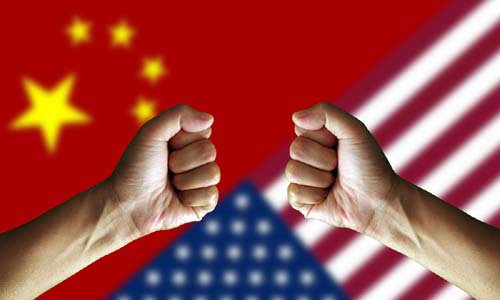
Smearing CPC shows US’ nature to damage
Li Haidong
A document released by the US Department of State in early January accused the Communist Party of China (CPC) of “threatening global peace and security” by “expanding its power and influence at the expense of others in at least six ways.” These, as the report claims, include “predatory economic practices,” “military aggression in the Indo-Pacific region,” “undermining global norms and values,” “coercive tactics abroad,” “disregard for human rights” and “environmental abuses.”
The US is absolutely not qualified to blame China in these aspects. The US initiated a trade war with China, launched dozens of violent military conflicts after WWII, maintained its ideological hegemony, and publicly refused to shoulder its due responsibility for climate change.
After the end of the Cold War, the most messed-up parts of the world have been areas where the US has been highly involved.
The US aid to other countries is always conditional – such as whether these countries meet US standards of the so-called freedom and democracy. Washington criticized Beijing’s “disregard for human rights,” but under the impact of the COVID-19 epidemic and the presidential election, the US’ so-called human rights has shown its true face.
These facts are known to all. Similar lies of the US will eventually fail. Not to mention the “norms and values” – how is the US even qualified to talk about values when riots have taken place in the Capitol Hill?
Some American politicians, represented by US Secretary of State Mike Pompeo, are full of lies. That such a person can become US secretary of state reflects how malformed the US political environment can be. The US is not qualified to teach or even criticize China. As Chinese Foreign Ministry spokesperson Zhao Lijian said on Monday, “During his tenure of office, Pompeo has dented US image and reputation as well as its relations with other countries more than ever.”
Pompeo on Friday wrote a series of tweets to criticize the CPC’s policies on religion, human rights, and issues realated to China’s Tibet and Xinjiang, claiming what the US did against China is the “legacy” of his tenure in office.
The so-called legacy is simply garbage, or, as Zhao said, “poison.” The final frenzied acts of Pompeo and some other US politicians are aimed at spreading the Trump administration’s hostile policy toward China. They are trying their best to let the next administration inherit it. The Trump administration’s China policy is not based on reality, but on a distorted concept.
But the biggest problem in the US is at home, not abroad. The US has tried to use foreign crises to resolve its own domestic crises and use China-US confrontations to alleviate its domestic division. Such an approach does not touch the fundamentals and will not succeed.
The accusations against China in the document pertain only to the US itself. A Pew Research Center’s report released in 2019 showed that more people around the world came to see US power and influence as a “major threat” to their country. A median of 45 percent across the surveyed nations see US power and influence as a major threat, up from 38 percent in the same countries during Trump’s first year as president in 2017 and 25 percent in 2013.
Perhaps we can put it this way: Wherever there is prosperity, there will be US meddling. For example, the Asia-Pacific region is now one of the world’s stable economic development engines. And the US has been creating chaos in the region.
The US, not China, is the most destructive force to world peace and stability. As a matter of fact, the US poses the biggest threat to the stability of global order and global economic prosperity. The fundamental reason is this: The US’ ruling class has deviated from the general interests of the American people. Therefore, some of the US policies constitute a threat to world peace and to the country’s own unity. Some American politicians have created serious chaos without providing any constructive solutions.
The series of attacks against and the false statements about the CPC by the US Department of State have made people, especially the Chinese people, understand the nature of US diplomacy. Essentially, US diplomacy aims to mess up other countries rather than to make contributions. This has worsened Chinese people’s impressions of the US.
China will develop at its own pace, and the cohesion of Chinese society will not change due to the US’ influence. No matter how hard the US tries to tarnish China’s image, in the face of these smears, China will maintain strong unity that will always grow stronger. China will always do its own things well and set its own calendar to do so. The country will not be troubled by any external and adverse factors.
The author is a professor of American studies at China Foreign Affairs University.
